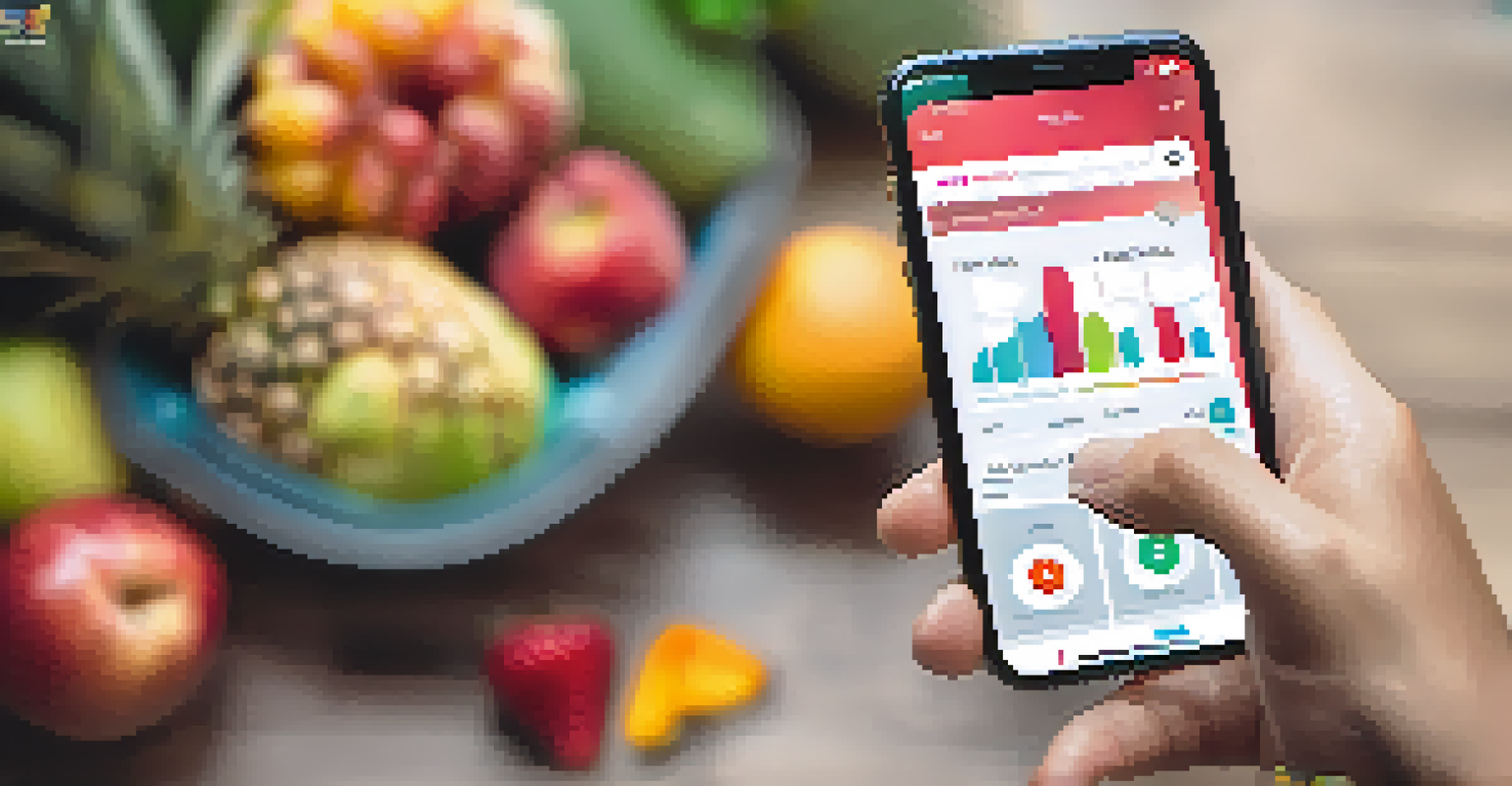How to Choose the Right Health Management App for You

Understand Your Health Goals Before Choosing an App
Before diving into the world of health management apps, it's crucial to pinpoint your specific health goals. Are you looking to lose weight, monitor your sleep, or track fitness activities? Having a clear idea of what you want will guide your search and help you find an app that aligns with your needs.
The greatest wealth is health.
For instance, if weight loss is your primary focus, you might want an app that includes meal planning and calorie tracking features. On the other hand, if you're interested in mindfulness, you might prioritize apps that offer meditation exercises or stress management tools. Understanding your goals can save you time and frustration in the long run.
Remember, not every app does it all. By outlining your objectives first, you can ensure that the app you choose supports your journey effectively.
Evaluate Key Features for Comprehensive Health Tracking
When selecting a health management app, evaluating its features is essential. Look for functionalities like activity tracking, nutrition logging, or medication reminders, depending on your needs. A good app should offer a blend of these features to provide a well-rounded approach to health management.

For example, if you're managing a chronic condition, an app that allows you to log symptoms and medication schedules can be invaluable. Alternatively, if you're focused on fitness, features that integrate with wearable devices or provide workout plans may be more beneficial.
Define Your Health Goals First
Identifying your specific health objectives is essential to find an app that aligns with your needs.
Ultimately, the right features can significantly enhance your experience and help you stay on track with your health goals.
Consider User-Friendliness and Interface Design
User-friendliness is a critical aspect when choosing a health management app. An intuitive interface can make a world of difference, especially if you're not tech-savvy. Look for apps that are easy to navigate, with clear menus and straightforward instructions.
Your health is an investment, not an expense.
Imagine trying to track your meals on an app that’s cluttered and confusing. It can quickly become frustrating and may even deter you from using it altogether. A clean design with logical flow will encourage regular use, making it easier to stay committed to your health journey.
Before making a final decision, consider downloading a few options to test their interfaces. This hands-on approach can help you find the most user-friendly app for your needs.
Check for Integration with Other Health Tools
In today's digital age, integration is key for seamless health management. An app that works well with other health tools, like fitness trackers or health monitoring devices, can streamline your experience. This means you won't have to input data manually, saving you time and effort.
For instance, if you own a smartwatch that tracks your heart rate, finding an app that syncs with it can provide a comprehensive view of your health. This connectivity can also help you analyze trends over time, making it easier to adjust your health strategies accordingly.
Assess Key App Features
Evaluating features like activity tracking and nutrition logging ensures you select an app that supports comprehensive health management.
Look for apps that offer integration capabilities with other popular health services and devices to maximize their effectiveness.
Read Reviews and Ratings from Other Users
Before committing to a health management app, it's wise to read reviews and ratings from other users. These insights can provide a glimpse into the app's effectiveness and user satisfaction. Look for trends in the feedback—are users consistently praising certain features or mentioning recurring issues?
For example, if many users highlight that an app's customer service is unresponsive, it might be a red flag. Conversely, if people rave about its motivational features, it could reinforce your decision to try it out. User reviews can shed light on the app’s overall reliability and help you make a more informed choice.
Don't hesitate to explore multiple sources for reviews, including app stores and independent review sites, to get a well-rounded perspective.
Evaluate Privacy and Data Security Features
In an era where data privacy is paramount, evaluating an app's privacy and security features is crucial. Health management apps often collect sensitive personal information, so it’s essential to know how that data is stored and protected. Look for apps that clearly outline their privacy policies and data protection measures.
For instance, does the app use encryption to protect your information? Are there options to customize what data you share? Understanding these aspects can help you feel more secure when using the app.
Prioritize Data Privacy
It's crucial to understand how an app protects your sensitive health information to ensure your data remains secure.
Don't shy away from asking questions or seeking clarification about privacy features before making your choice. After all, your health data should remain safe and confidential.
Explore Pricing Models: Free vs. Paid Apps
When it comes to health management apps, pricing models can vary significantly. Some apps are completely free, while others offer premium features behind a paywall. It's important to weigh the pros and cons of both free and paid options to determine what works best for your budget and needs.
Free apps often provide basic functionalities, but you might find that a paid app offers more advanced features like personalized coaching or in-depth analytics. However, that doesn’t mean you should dismiss free options outright; many offer great value without any cost.

Before committing, consider what features are essential for you and whether they warrant a subscription. This evaluation can help you choose an app that fits your financial situation while still supporting your health journey.